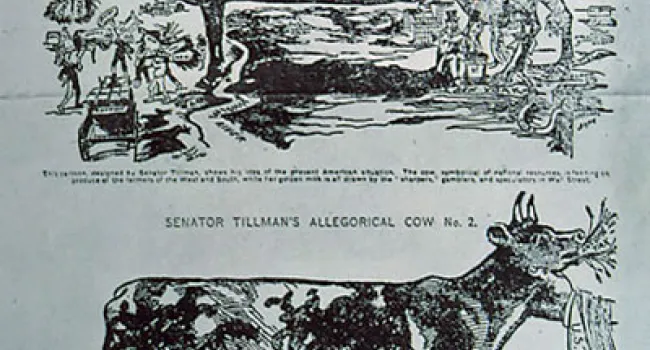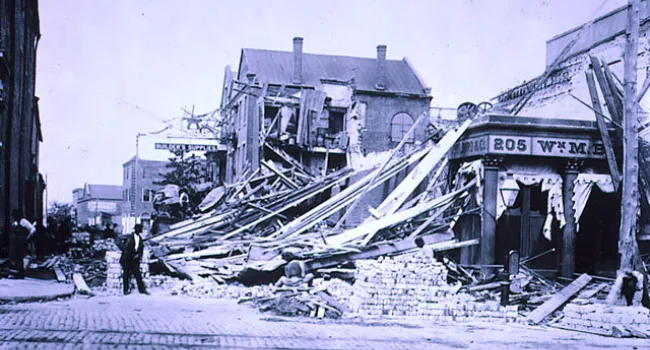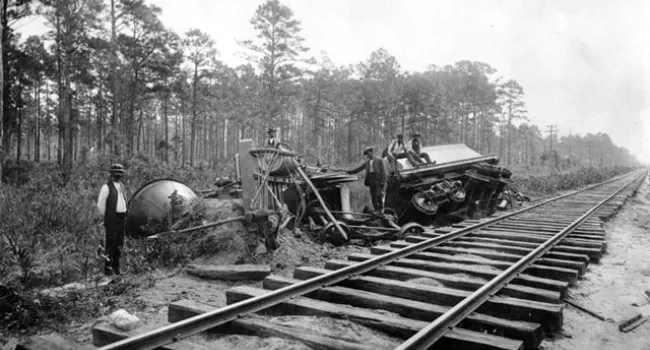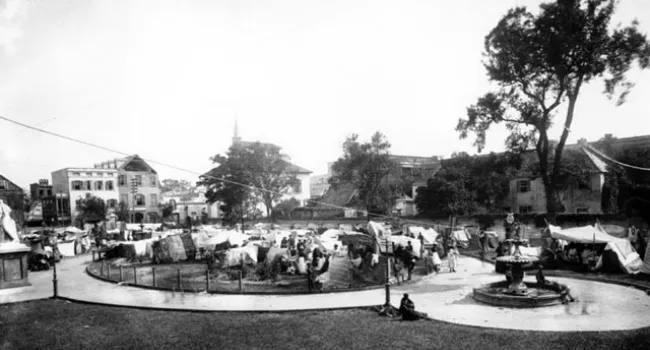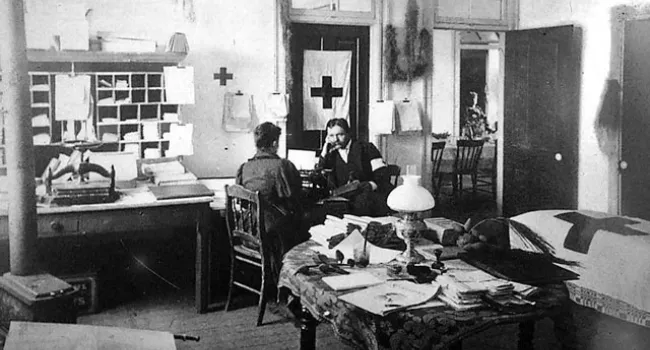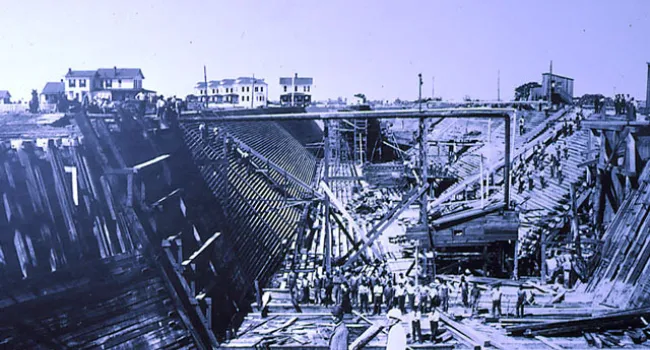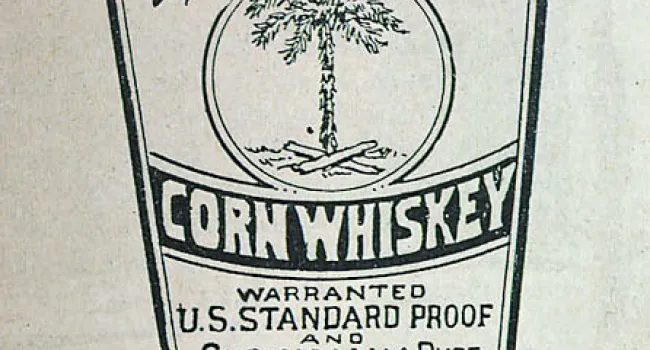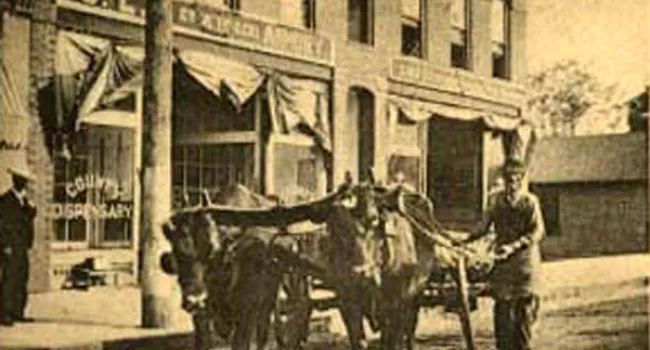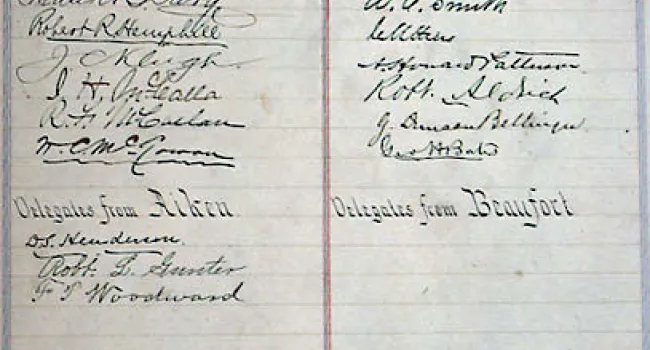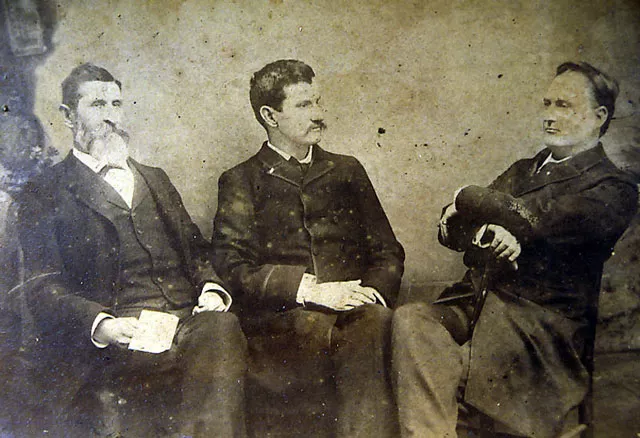
George W. Shell, Benjamin R. Tillman, and John L.M. Irby pose for an 1890 photograph with the caption, "Leaders of the Farmer's Movement in South Carolina." The rise and rule of Tillmanism in South Carolina is, like the end of Reconstruction, a complicated story that cannot be treated fairly in the captions to a few photographs. Tillman (see image 142 in "Portraits of Noted Carolinians") was a rough but spellbinding orator, who rose to statewide political power between 1885 and 1890 by appealing to the very real needs, but also to the prejudices, of Upcountry farmers. Using the "stump meeting" tradition, in which candidates for the Democratic nominations went to local communities to win votes and support through fiery speeches, Tillman, Shell (who was president of the Farmers' Association), and Irby seized control of the Farmers' Association. They used its influence to seize control of Democratic Party meetings, and defeated the conservative political leadership that had ruled South Carolina since the end of Reconstruction.
Courtesy of the Edgefield County Historical Society.
Standards
- 4.5.CX Contextualize the economic, labor, political, and social conditions in South Carolina during the period of Reconstruction.
- This indicator was developed to encourage inquiry into how the former planter class, African Americans, women, and others adjusted to, gained, lost, and/or regained position and status during Reconstruction. This indicator was also written to foster inquiry into how South Carolina worked with a stronger federal government and expanding international markets.
